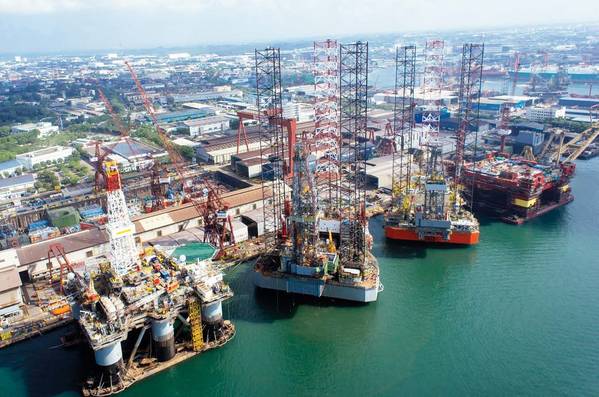
On the back of improving conditions in the offshore rig market, Singaporean asset manager and operator Keppel has set out to secure control over 13 legacy rigs held by Rigco Holding (Asset C) as part of its plan to accelerate monetization of rigs without re-entering the offshore market.
Keppel currently holds a 10% equity stake in Asset Co, $103.4 million (S$139) million in perpetual securities and approximately $3.2 billion (S$4.3 billion) in vendor notes issued by Asset Co.
When the selective capital reduction (SCR) exercise is completed by Asset Co by the end of 2024, the shares in the capital of Asset Co not held by Keppel will be cancelled, resulting in Asset Co becoming a wholly-owned subsidiary of Keppel.
Asset Co will be housed within a newly created private fund to be managed by Keppel.
With control over Asset Co, Keppel will be able to effectively manage when and how the legacy assets are monetized, with the goal of achieving the best risk-adjusted returns.
Keppel will also have control of $627 million (S$843 million) of cash in Asset Co as at end September 2024, which it can utilize to complete the unfinished rigs.
The company stressed it has no intention of re-entering the offshore and marine business.
However, as the largest economic interest holder in Asset Co, Keppel remains focused on the monetization of the legacy assets.
As part of the existing master services agreement, Seatrium will continue to provide construction, maintenance, and other associated services for the legacy rigs for an initial period of 10 years after the combination of Keppel Offshore & Marine (now known as Seatrium Offshore & Marine) and Sembcorp Marine (now known as Seatrium).
In line with its asset-light business model, Keppel plans to establish a new and dedicated private fund, the Keppel Offshore Infrastructure Fund, to own and manage the legacy rigs and its 49% stake in Floatel as well as attract third party capital from limited partners and co-investors.
This will provide Keppel with greater strategic flexibility to respond to market opportunities via directly managing the rig assets through the fund, while potentially earning asset management fees as a general partner of the fund.
The fund would also have the optionality of selling the rigs or exiting through a securitization route in future.
“Asset Co has one of the most advanced rig fleets available in the market today, where about half of these rigs are contracted and generating stable cashflows.
“Amidst the improving conditions in the offshore rig market, with some segments benefitting from utilization rates of about 90% and improving day rates, securing control over the management and monetization of our legacy rigs will enable us to reduce our risks as a substantial creditor to Asset Co, and better realize the potential of its assets.
“A successful selective capital reduction exercise by Asset Co will put us in the driver’s seat to exert better control of the cash in Asset Co, and accelerate rig monetization which will unlock funds that can be used to reduce debt, reinvest for growth and reward shareholders.
“The planned establishment of a private fund to manage Asset Co’s rigs will further complement this goal, allowing us to turn these legacy assets into fee-bearing funds under management in line with our asset light model,” said Loh Chin Hua, CEO of Keppel.
The global drilling fleet is aging rapidly, compounded by years of underinvestment in new supply. This trend is especially evident in the jackup market, where a shortage of premium rigs is projected in the coming years.
The increasing shortage of advanced drilling rigs, along with the high costs and long lead time associated with constructing new ones, is likely to create attractive opportunities for undelivered rigs from the previous construction cycle and the remaining idle rigs that can be reactivated.
According to Keppel, this trend presents a prime opportunity the company as an asset manager to unlock the potential of its legacy rigs by offering operators a more cost-effective and quicker means of securing additional rigs for their near-term drilling requirements.